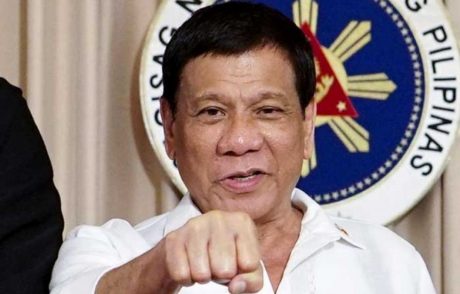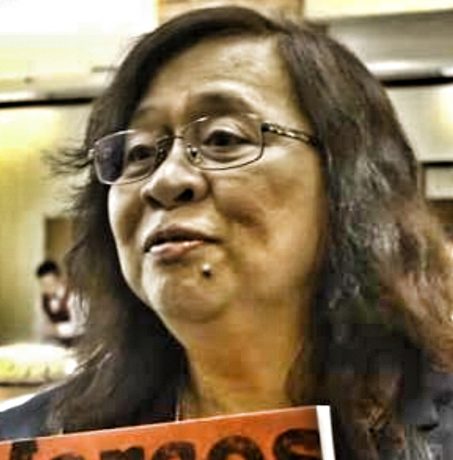
An article on the role “Cambridge Analytica’s parent company” supposedly played in the victory of current President Rodrigo Duterte in the 2016 elections is making the rounds. The “report” published on the South China Morning Post and authored by renowned Filipino “investigative journalist” Raissa Robles insinuates that the firm helped “rebrand” Duterte as “a strong, no-nonsense man of action”.
This, according to the snippet quoted by Robles off the firm’s website…
“In the run up to national elections the incumbent client was widely perceived as both kind and honourable, qualities his campaign team thought were potentially election-winning,” the SCL web content said. “But SCL’s research showed that many groups within the electorate were more likely to be swayed by qualities such as toughness and decisiveness. SCL used the cross-cutting issue of crime to rebrand the client as a strong, no-nonsense man of action, who would appeal to the true values of the voters.”
Then again, this supposedly brilliant bit of analytics insight delivered to the mystery Duterte support effort (which may not have existed) that may (or may not) have contributed to building the successful campaign that catapulted Duterte to the presidency in 2016 is a no-brainer. Crime and indecisive no-action politicians have long been a scourge of Philippine politics. Campaign strategists who apply a bit of traditional brain to their craft would have spotted this opportunity straightaway. And in Duterte, they found a person who could simply remain consistent with his proven track record spanning decades as mayor of his southern Philippine city and be outright winnable at the same time.

In short, Duterte could simply have happened to be the right person who was in the right place at the right time coming into an election to be decided by voters who evidently have had enough of 30 years of Liberal Party (a.k.a. the Yellowtards) bullshittery. So, this is really more a chicken-and-egg dilemma. Did the analytics result in the win? Or did the analytics simply validate the candidate? Either way, sinister corporate forces were not at work here as Robles “reports”.
Robles is only too quick to give too much credit to these sorts of Big Data consulting services. She recklessly assigns a cause-and-effect relationship between a merely inferred “involvement” of Cambridge Analytica’s “parent company” in Philippine politics and the victory of Duterte in the 2016 elections. And even if it was true that such a consulting service was provided to the Duterte campaign, how big a contribution it had on the success of the campaign remains debatable just the same.
Dr. Robert Epstein, a senior research psychologist at the American Institute for Behavioral Research and Technology asserts that Cambridge Analytica Is Not The Problem…
I conduct scientific research on online manipulation, and, at this point, I probably know more about it than anyone else in the world. Online manipulation of our thinking, opinions, purchases and votes is real, powerful and scary; the numbers are mindboggling, in fact. But Cambridge Analytica is not the problem, mainly because the methods it uses to manipulate are not very powerful. Compared with the real threats out there, they are, in fact, trivial.
It simply means that these new technologies and new tools of the influencing trade are widely accessible and that the use of science to target influence campaigns are things everybody does…
During the 2016 campaign, Hillary Clinton had far more powerful digital tools at her disposal than Trump did. To give you just one example, in 2015, Google czar Eric Schmidt — who, at one point, had offered to oversee Hillary’s digital campaign — set up a secretive tech company called The Groundwork, the sole purpose of which was to make Hillary president. It was staffed by many of the same people who served on Obama’s 2012 tech team, which was also supervised by Schmidt.5,000 data points? P’lease. The Groundwork had access to Google’s entire data base — hundreds of thousands of digital facts about each of us, including our search histories and emails — so much information, in fact, that Google could likely have computed the election results days before Election Day. (Although Google obviously screwed up on its Electoral College calculations, Clinton won the popular vote by nearly 3 million, almost certainly with Google’s help.)
In comparison, Dr. Epstein points out, “Cambridge Analytica’s manipulations are trivial”. Dr. Epstein then asserts where thereal power to influence minds resides…
So who has the power to change minds and flip elections? It’s the platforms: and that means Google, Facebook, and, to a much lesser extent, Twitter. This is because no matter what content people are generating — and when Cambridge Analytica is placing ads, it is a content provider — Google and Facebook have complete control over what people will see (“filtering”) and in what order information will be displayed (“ordering”).
It is quite laughable to watch as the depleted minds of the corporate media mouthpieces of the Yellowtards continue to scrounge around for little morsels of information (or mere notions) to serve as fodder for their flaccid “Opposition” to the Duterte administration. Rather than compete on strategy, the Yellowtards are merely sniping with rubber bullets.
Filipinos do not deserve this sort of idiotic political Opposition. They deserve a real one that could deliver true strategic challenge to the wildly-popular government of President Duterte. Insulting the intelligence of an entire electorate is so 1980s-era Philippine politics. As is evident today, that tired old excuse of an opposition “strategy” no longer works.

No comments:
Post a Comment